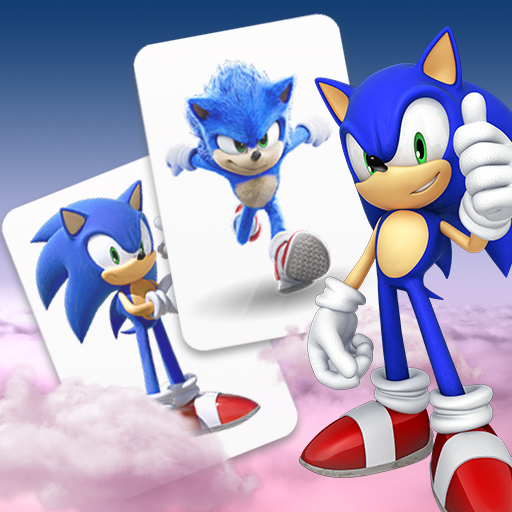Thumbnail
Category
Description
Sonic the Hedgehog is the title character and the protagonist of the Sonic the Hedgehog video game series published by Sega, as well as numerous spin-off comics, animations, and other media. Sonic is a blue anthropomorphic hedgehog who can run at supersonic speeds and curl into a ball, primarily to attack enemies. In most games, Sonic must race through levels, collecting power-up rings and avoiding obstacles and enemies. Programmer Yuji Naka and artist Naoto Ohshima are generally credited with creating Sonic. Most of the games are developed by Sonic Team. The original Sonic the Hedgehog (1991) was released to provide Sega with a mascot to rival Nintendo's flagship character Mario. Sonic was redesigned by Yuji Uekawa for Sonic Adventure (1998), with a more mature look designed to appeal to older players. Sonic is one of the world's best-known video game characters and a gaming icon. His series had sold more than 80 million copies by 2011. In 2005, Sonic was one of the first game character inductees into the Walk of Game alongside Mario, Link, and Master Chief. Sonic's first shown appearance in a video game was in the 1991 arcade racing game Rad Mobile, as a decorative ornament hanging from a rearview mirror. Sonic's first playable appearance was in the platform game Sonic the Hedgehog for the Sega Mega Drive/Genesis, which also introduced his nemesis Dr. Robotnik. His two-tailed fox friend Tails joined him in the game's 1992 sequel, Sonic the Hedgehog 2. Sonic CD, released in 1993, introduced Sonic's self-appointed girlfriend Amy Rose and recurring robotic doppelgänger Metal Sonic as Sonic traveled through time to ensure a good future for the world. Sonic 3 and its direct sequel Sonic & Knuckles, both released in 1994, saw Sonic and Tails battle Robotnik again, with the additional threat of Knuckles, who is tricked by Robotnik into thinking Sonic is a threat. Sonic 4 (2010–2012) continues where the story of Sonic 3 left off, reducing Sonic to the only playable character and releasing in episodic installments. The second episode sees the return of both Tails as Sonic's sidekick and Metal Sonic as a recurring enemy. Other two-dimensional platformers starring Sonic include Sonic Chaos (1993), Sonic Triple Trouble (1994), Sonic Blast (1996), Sonic the Hedgehog Pocket Adventure (1999), Sonic Advance (2001), Sonic Advance 2 (2002), Sonic Advance 3 (2004), Sonic Rush (2005), Sonic Rush Adventure (2007), Sonic Colors (2010), and Sonic Generations (2011), all in which were released for handheld consoles. Sonic Adventure (1998) was Sonic Team's return to the character for a major game. It featured Sonic returning from vacation to find the city of Station Square under attack by a new foe named Chaos, under the control of Dr. Robotnik (now known as Dr. Eggman). It was also the first Sonic game to feature a complete voice-over. Sonic Adventure 2 (2001) placed Sonic on-the-run from the military (G.U.N.) after being mistaken for Shadow the Hedgehog. Sonic Heroes (2003) featured Sonic teaming up with Tails and Knuckles, along with other character teams like Team Rose and Chaotix, against the newly rebuilt Metal Sonic, who had betrayed his master with intentions of world domination. Sonic the Hedgehog (2006) features Sonic in the city of water, "Soleanna," where he must rescue Princess Elise from Dr. Eggman while trying to avoid a new threat to his own life, Silver the Hedgehog. He is the only playable character in Sonic Unleashed (2008), in which he unwillingly gains a new personality, "Sonic the Werehog," the result of Sonic being fused with Dark Gaia's power. He gains strength and flexibility in exchange for his speed, and new friends including a strange creature named Chip who helps him along the way. In Sonic Colors (2010), Eggman tries to harness the energy of alien beings known as "Wisps" for a mind-control beam. Sonic Generations (2011) features two playable incarnations of Sonic: the younger "classic" Sonic, whose gameplay is presented in a style reminiscent of the Mega Drive/Genesis games, and present-day "modern" Sonic, who uses the gameplay style present in Unleashed and Colors, going through stages from past games to save their friends. Sonic Generations features various theme songs including modern and retro versions that are able to be selected from throughout Sonic's twenty-year history. In April 2013, Sega announced that Sonic Lost World would launch in October 2013 for the Wii U and Nintendo 3DS. Sonic and the Secret Rings (2007) features Sonic in the storybook world of One Thousand and One Nights. A sequel, Sonic and the Black Knight (2009), continued the storybook theme, this time taking place within the realm of the Arthurian legend. Sonic has also been featured in other games of many genres other than 2D and 3D platform games. These include Sonic Spinball, Sonic Labyrinth (1995), the racing games Sonic Drift (1994), Sonic Drift 2 (1995), Sonic R (1996), Sonic Riders (2006), Sonic Rivals (2006), Sonic Rivals 2 (2007), Sonic Riders: Zero Gravity (2008), and Sonic Free Riders (2010), the fighting games Sonic the Fighters (1996) and Sonic Battle (2003), the mobile game Sonic Jump (2005), and the role-playing video game Sonic Chronicles: The Dark Brotherhood (2008). Video games such as Dr. Robotnik's Mean Bean Machine (1993), Knuckles' Chaotix (1995), Tails' Skypatrol (1995), Tails Adventure (1995), and Shadow the Hedgehog (2005) starred supporting characters of the Sonic series, although Sonic himself cameos in most of them.
Tags
Instructions
Tap To Play
Size
800 X 600
Published
Mon May 16 2022








